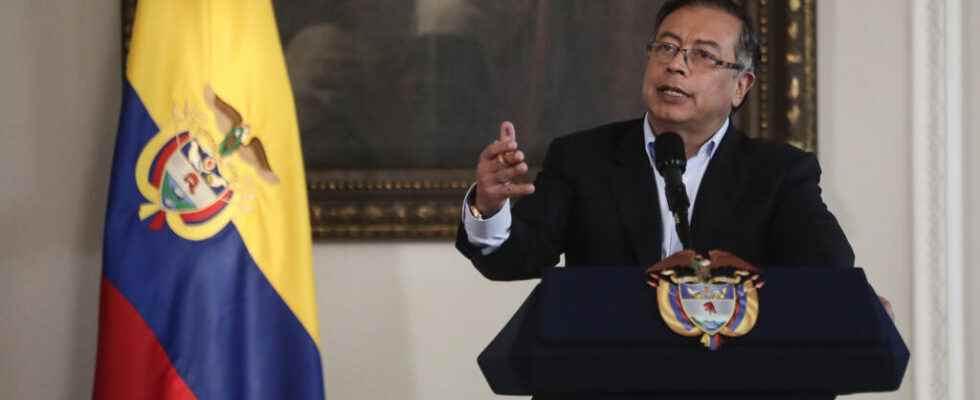This Monday, November 21, negotiations resume in Caracas with the guerrillas of the National Liberation Army (ELN). The talks had been suspended four years ago, after a bloody attack in Bogotá claimed by this Castro-based guerrilla.
With our correspondent in Bogotá, Marie-Eve Detoeuf
Colombian President Gustavo Petro, a guerrilla in his youth, intends to bring negotiations with the ELN to a successful conclusion. This guerrilla has been in the maquis for nearly 60 years and has 2,500 fighters, according to the authorities. Petro has appointed Otty Patino, a former comrade in arms, now a writer, as chief negotiator.
And Petro created the surprise by proposing to the president of the Breeders’ Federation to be part of the negotiating team. A proposal that Jose Felix Lafaurie accepted, he who embodies the most radical right in the country. Two former soldiers are also part of the government team. On the side of the ELN, Pablo Beltran, 68, will lead the negotiations. The ELN delegation has a total of seventeen guerrillas. The majority are men, many have white hair. On the ground, the ELN has been respecting a ceasefire for several weeks, so there is optimism. But no one doubts that the peace talks will be long and difficult.
” Peace in Colombia is a regional concern »
A neighboring country to Colombia, Venezuela is making its return to the forefront of the international scene after years of isolation. Because it is in Caracas that talks between the Colombian government and the National Liberation Army resume on Monday. According to Hector Fabio Henao, representative of the Colombian Church in these negotiations, “ the decision for Venezuela to be a guarantor country was made under former President Juan Manuel Santos, when decisions with the ELN began. Venezuela is on the initial list, alongside Norway and Cuba, as a country where negotiations can take place and as a guarantor country. ».
Hector Fabio Henao, a key player in the rapprochement between the Petro government and the ELN continues: ” The subject of peace in Colombia is a regional concern. Our common border is very extensive, more than 2 000 kilometers long. It cannot be ignored because a large part of the armed conflict is concentrated precisely in the border area. And also because our two peoples are intimately linked for many reasons. »
► Read also: Colombia: tax reform approved by Congress, “a path to justice” for Gustavo Petro
